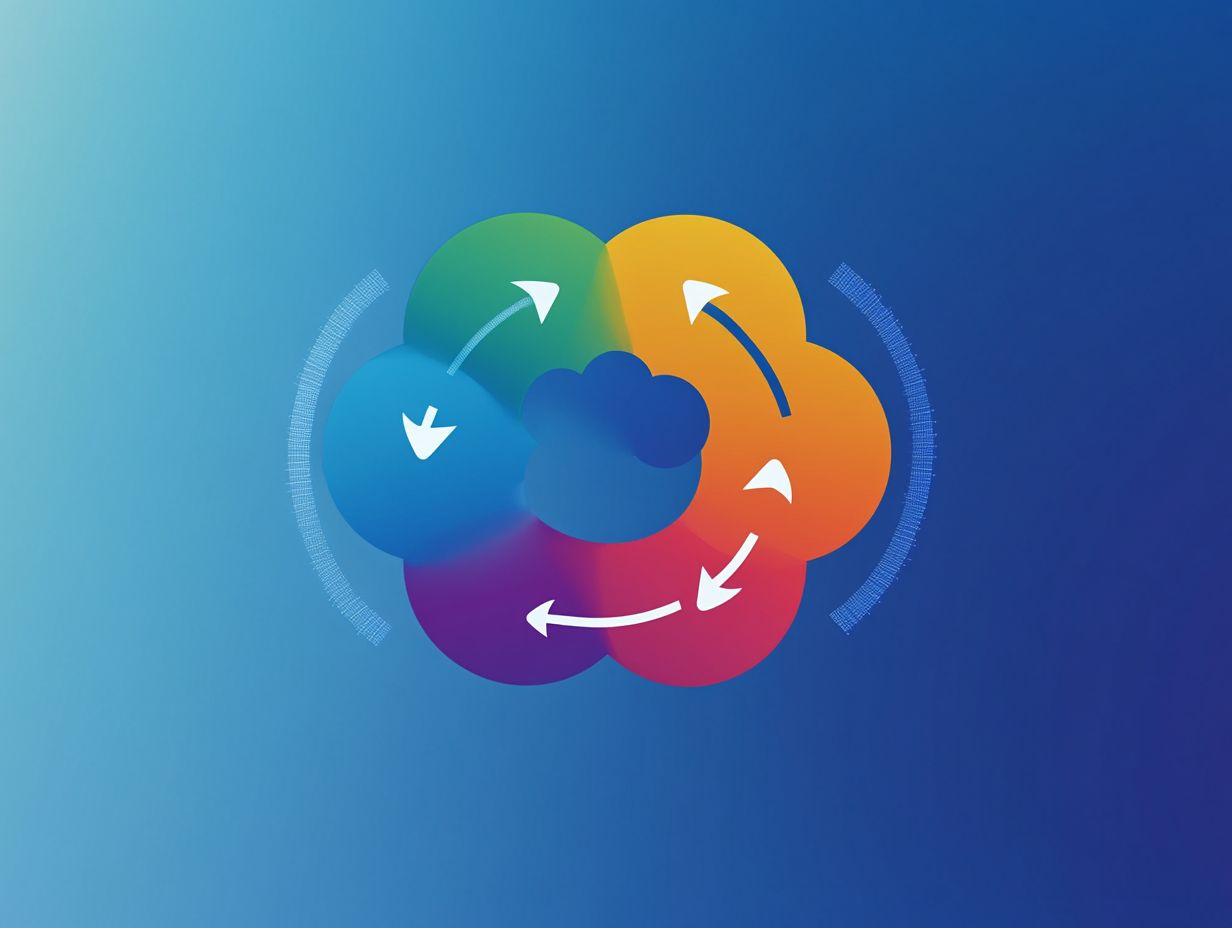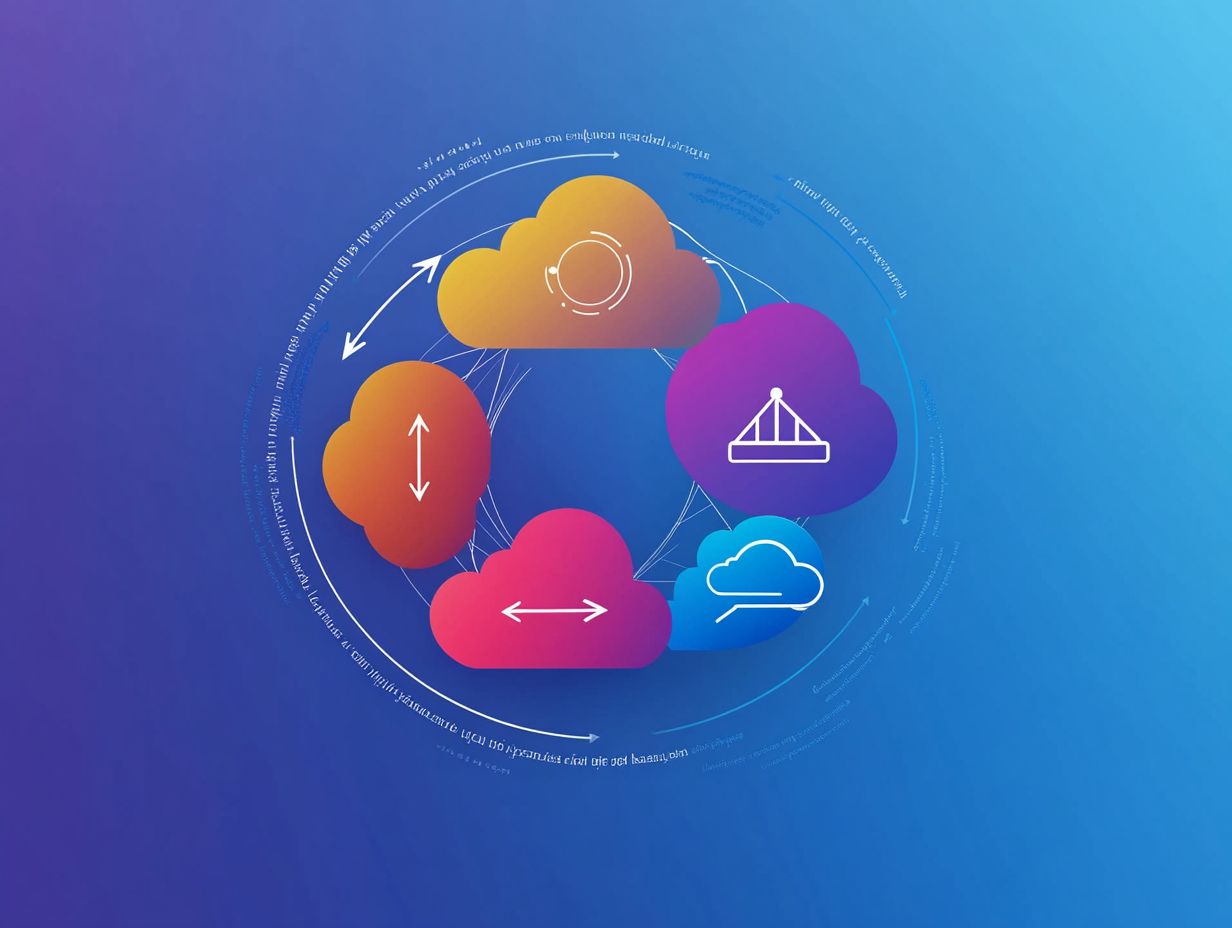5 Cloud Providers with the Best Scalability
In today s fast-paced digital landscape, scalability is vital for any business aspiring to grow. The capability to swiftly adjust resources in response to fluctuating demand can truly distinguish your company from the competition.
This article delves into five prominent cloud providers Amazon Web Services (AWS), Microsoft Azure, Google Cloud Platform (GCP), IBM Cloud, and Oracle Cloud Infrastructure. It evaluates their scalability features, strengths, and potential drawbacks.
You ll uncover how to select the right provider that aligns with your unique needs, ultimately enhancing your business’s agility.
Contents
- Key Takeaways:
- 1. Amazon Web Services (AWS)
- 2. Microsoft Azure
- 3. Google Cloud Platform (GCP)
- 4. IBM Cloud
- 5. Oracle Cloud Infrastructure
- What Is Cloud Scalability and Why Is It Important?
- What Are the Key Factors to Consider When Choosing a Cloud Provider for Scalability?
- How Do These Providers Compare in Terms of Scalability?
- What Are the Unique Features of Each Provider’s Scalability Options?
- What Are the Potential Downsides of Choosing a Cloud Provider Based on Scalability?
- Which Cloud Provider Is the Best Fit for Your Business’s Scalability Needs?
- Frequently Asked Questions
- 1. What are the 5 best cloud providers with the best scalability?
- 2. What makes these 5 cloud providers stand out in terms of scalability?
- 3. Can I easily increase or decrease my resources with these cloud providers?
- 4. Are there any additional costs for scaling with these cloud providers?
- 5. Which of these cloud providers offer the best support for scaling?
- 6. Can I easily migrate my existing infrastructure to one of these cloud providers for better scalability?
- Summary
Key Takeaways:

AWS, Azure, GCP, IBM Cloud, and Oracle Cloud are top providers for scalability.
Cloud scalability helps your business adapt quickly to changes!
Factors to consider when choosing a provider include costs, features, and customer support.
1. Amazon Web Services (AWS)
AWS is a leading cloud service provider that can supercharge your business! It revolutionizes the way you harness cloud computing with its extensive range of services that help businesses manage their IT resources over the internet.
This platform excels in scalability and security, featuring a vast network of data centers that ensure exceptional accessibility and performance for businesses of any size.
With AWS’s commitment to innovation, you can seamlessly adopt cutting-edge technologies like artificial intelligence and machine learning. This flexibility enables you to swiftly adapt to market dynamics while upholding robust security measures that reinforce confidence in your operations.
Their strategic partnerships with leading technology brands enhance your experience, delivering integrated solutions that streamline processes and elevate productivity.
Ultimately, AWS doesn t just provide cloud resources; it enables you to transform the way you run your business, optimize costs, and boost overall efficiency in an increasingly competitive landscape.
2. Microsoft Azure
Microsoft Azure stands out as a formidable player in the cloud services arena, presenting you with extensive capabilities in cloud scalability along with various pricing models tailored to meet your unique business needs.
What truly distinguishes Azure is its innovative delivery models, especially cloud systems that combine on-site and online resources. This level of flexibility enables you to optimize operations while retaining crucial control over sensitive data.
Microsoft s dedication to data security is reflected in its robust compliance framework. It aligns with global regulations and industry standards, ensuring that you are well-protected against potential risks.
Azure also helps you manage costs effectively, allowing you to utilize pay-as-you-go pricing and reserved instances. This enables you to manage your budget while still benefiting from advanced cloud technologies.
3. Google Cloud Platform (GCP)
Google Cloud Platform (GCP) harnesses cutting-edge technology to provide powerful cloud computing solutions, especially in data analytics and machine learning, making it a premier choice for forward-thinking enterprises.
With services like BigQuery for rapid, large-scale data analysis and Vertex AI for seamless machine learning model development, GCP significantly enhances your decision-making processes and operational efficiency.
These tools enable you to process vast amounts of data while offering predictive insights that can drive your strategic initiatives.
In terms of scalability, GCP truly shines with its ability to automatically adjust resources based on demand, delivering more flexibility than many of its competitors.
Combined with robust security features like data encryption and identity management, it provides the assurance that your information is well-protected, fostering both growth and compliance.
4. IBM Cloud

IBM Cloud sets itself apart with a formidable lineup of managed services and disaster recovery solutions designed to ensure your business continuity and streamline cloud cost management.
These services do more than simply reduce downtime; they offer you a safety net! This allows your organization to bounce back swiftly from unexpected disruptions.
You can choose from a range of cloud service models Infrastructure as a Service (IaaS), Platform as a Service (PaaS), and Software as a Service (SaaS) each customizable to fit your unique needs.
With clear and transparent pricing strategies, you can budget effectively while taking advantage of scalable solutions that grow alongside your business.
IBM’s substantial market share highlights its reputation as a dependable partner in the cloud arena, especially for enterprises seeking comprehensive solutions in this rapidly changing digital landscape.
5. Oracle Cloud Infrastructure
Oracle Cloud Infrastructure distinguishes itself in the cloud services arena with a keen emphasis on data security and performance. It establishes itself as a trusted ally for enterprises in search of reliable cloud computing solutions.
You ll appreciate its comprehensive suite of cloud-based services, meticulously designed to cater to diverse business needs while prioritizing robust security protocols that protect sensitive information.
As you navigate the landscape, you may encounter concerns about vendor lock-in. This issue can complicate transitions and scalability. Oracle proactively addresses this challenge by providing flexible integration options and APIs, allowing you to migrate your workloads seamlessly without excessive dependence.
This unwavering commitment not only bolsters your confidence as a customer but also reinforces Oracle’s stronghold in a competitive market where data protection is crucial.
What Is Cloud Scalability and Why Is It Important?
Cloud scalability is your golden ticket to efficiently expanding resources in response to shifting business demands. This capability is a critical component of modern technology infrastructure and plays a vital role in enhancing your overall operational efficiency.
With this adaptability, you can handle increased workloads during peak times without sacrificing performance or racking up unnecessary costs during quieter periods. For instance, AWS offers auto-scaling features that automatically adjust resources based on demand, allowing you to maintain optimal performance effortlessly.
Similarly, Azure provides a range of scalability solutions, such as virtual machine scale sets, enabling you to manage large groups of VMs effortlessly. Google Cloud Platform (GCP) takes this to the next level with its Kubernetes Engine, making it easy for you to scale containerized applications up or down. For a deeper understanding of evaluating these services, consider the 5 criteria for comparing cloud providers.
This ensures that your resources are perfectly aligned with your current needs while also optimizing your budget management.
What Are the Key Factors to Consider When Choosing a Cloud Provider for Scalability?
When you’re selecting a cloud provider to ensure scalability, it’s essential to weigh several key factors, including cloud costs, security features, and features that differentiate cloud providers as your demands evolve.
Pricing models can vary significantly among providers. Some may offer convenient pay-as-you-go options, while others might require upfront commitments, which can impact your overall expenditure.
Data security is paramount in this decision-making process. You should assess how different providers handle data encryption, breach detection, and compliance with regulatory requirements like GDPR.
Another critical aspect to consider is resource availability. Providers with a global data center presence can offer better performance and redundancy an essential feature for businesses anticipating rapid growth.
By understanding how these elements differ across various cloud solutions, you can make more informed decisions that align perfectly with your unique needs!
How Do These Providers Compare in Terms of Scalability?

Comparing cloud service providers like AWS, Microsoft Azure, and Google Cloud Platform, scalability is key. For e-commerce businesses, choosing the best cloud providers can define how well they can meet your business needs.
Each platform has unique strengths and challenges, especially when it comes to adjusting computing resources based on workload. Pricing structures are also crucial; understanding how costs change with scaling strategies is vital for your budget.
Service availability across regions can impact your provider choice, especially if you operate globally and need consistent performance.
Examining these features reveals each provider’s technical capabilities. This information aligns closely with the diverse needs of today s dynamic market.
What Are the Unique Features of Each Provider’s Scalability Options?
Each major cloud provider offers unique scalability options for different business models. Whether considering public, private, or multi-cloud strategies, understanding the features of top cloud storage providers can help you respond to fluctuating demands.
AWS provides auto-scaling features, allowing automatic resource adjustments based on application loads. This boosts efficiency and keeps costs down.
Azure features tools for hybrid deployments, optimizing resource allocation by blending on-premises and cloud solutions.
GCP excels at processing large datasets with its serverless architecture, making it a great choice for companies focused on innovation and data analytics.
By customizing these capabilities, you position your enterprise to thrive in today s market.
What Are the Potential Downsides of Choosing a Cloud Provider Based on Scalability?
While scalability is critical, you also need to consider potential downsides. Issues like vendor lock-in and rising cloud costs can affect your long-term operations.
Relying too much on one vendor can limit flexibility and inflate costs when adjustments are needed. You might find yourself trapped in escalating expenses, making it hard to switch providers.
To guard against these risks, plan thoroughly. Assess long-term needs and consider multi-cloud strategies to avoid the pitfalls of single-vendor dependency.
Regularly review contracts and be aware of exit strategies to mitigate these challenges.
Which Cloud Provider Is the Best Fit for Your Business’s Scalability Needs?
Choosing the best cloud provider for your scalability needs requires careful evaluation of each provider’s offerings. Look for options that align with your goals and allow for customized solutions, such as the best cloud providers for data analytics.
This process can feel overwhelming due to the vast options available. Systematically assess your specific requirements against each provider’s features.
Define your scalability criteria, like data storage limits and user load capabilities. Check how well a provider s service level agreements (SLAs) match your growth expectations.
Engaging with customer support and reading testimonials can offer insights into real-world scalability performance.
Frequently Asked Questions

1. What are the 5 best cloud providers with the best scalability?
The top 5 cloud providers known for their scalability are Amazon Web Services (AWS), Microsoft Azure, Google Cloud Platform, IBM Cloud, and Oracle Cloud.
2. What makes these 5 cloud providers stand out in terms of scalability?
These cloud providers offer a wide range of resources and services, including unique features of top cloud storage providers. This variety allows for seamless adjustments to your infrastructure and applications.
3. Can I easily increase or decrease my resources with these cloud providers?
Absolutely! You can easily adjust your resources whenever you need them, thanks to their flexible scaling options.
4. Are there any additional costs for scaling with these cloud providers?
Scaling up or down is straightforward and can be done quickly! However, it does generally incur additional costs. They also provide various pricing models to help you manage your expenses effectively.
5. Which of these cloud providers offer the best support for scaling?
All 5 cloud providers excel in customer support and resources for scaling. AWS and Azure particularly stand out for their robust support services, making them ideal choices to consider for IaaS scalability.
6. Can I easily migrate my existing infrastructure to one of these cloud providers for better scalability?
Yes! Each cloud provider offers tools and services that simplify the migration of your existing infrastructure. This makes it easier for you to take advantage of their scalability options.
Summary
Start exploring these cloud providers today to enhance your scalability! With their diverse offerings and support, you can effortlessly scale your resources. Check out 5 cloud storage solutions for enterprises to meet your business needs.



